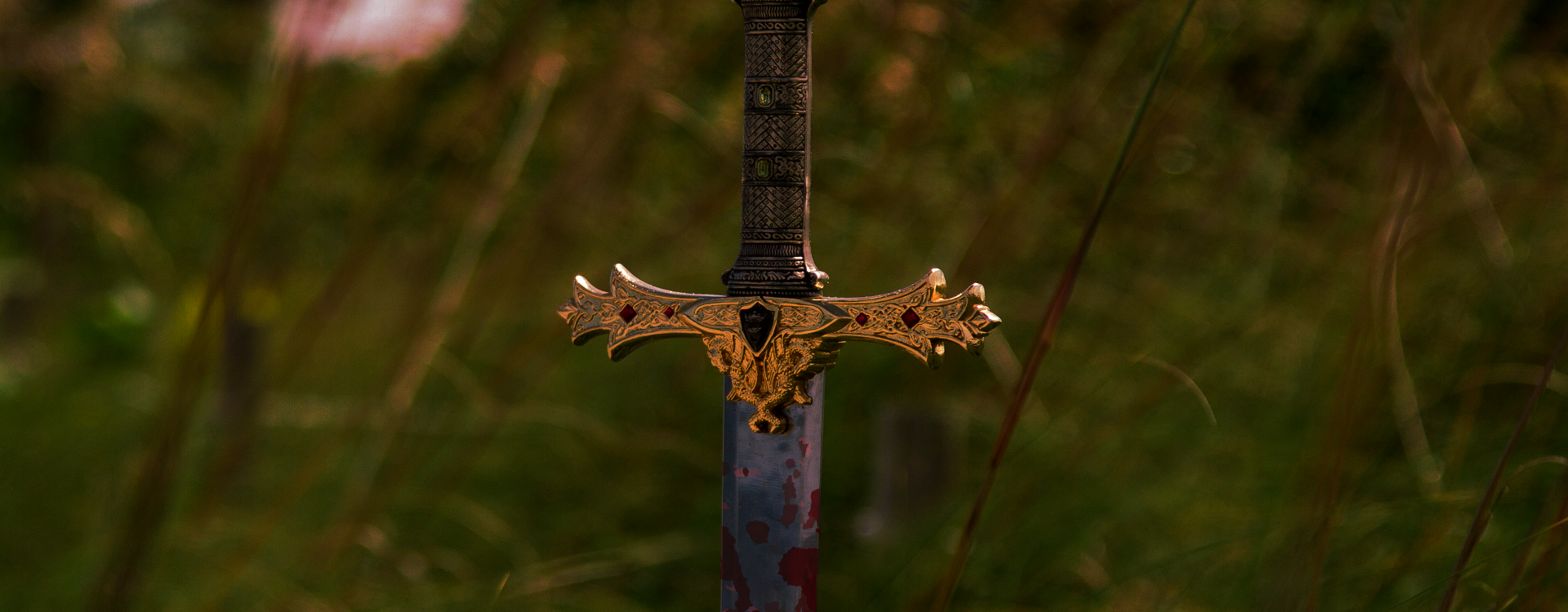Xaitha and Däko
For all his care afforded to his upcoming conquest, the attention paid to his soldiers and their gleaming armaments, he forgot that the most dangerous enemy is the one behind your lines.The story of Xaitha and Däko is one often told in central Thurásin, particularly around the shores of Lake Strelish. It is considered to be semi-historical in origin, though there are many versions of the tale that are more or less mythologised.
Legend
On the north shore of the lake, long ago, the great warrior Däko ruled the kingdom of Flaiwöl. He governed his people justly and fairly, and his people prospered. By his side throughout his reign was his wife, Xaitha, who took charge in religious rituals, such as in paying offerings to the dragon of the lake in exchange for good harvest. As the years advanced, Däko considered his lands too meagre for his people, and his gaze turned to the bountiful lands on the southern shore of the lake. While some diplomatic overtures were made, it became quickly apparent the only means of acquisition would be through violence. Däko prepared his army, personally training his soldiers. Not all agreed with his plan, either on strategic grounds or as an immoral act. Among them was his wife, who pleaded with the warrior to change his mind. But the glory of Flaiwöl was of utmost importance, and he would not be dissuaded. Xaitha turned to a higher power - the Diinöl Zdächörri, dragon of the Strelish. In the cold waters the dragon came to impart guidance, reminding the queen of the pledge she had made to the dragon herself - that she would care for all, not merely her own. In the Flaiwöl Palace, on the eve of when Däko would set out with his army, Xaitha came to him to plead once more. When her husband would not see reason, and recognise the suffering he was due to cause, she feigned acceptance before drawing a blade and stabbing the king. Däko cried out, and the palace awoke in a fervour to come to the king's aid. Before any could lay a hand on Xaitha, from the lake arose the dragon, who flew over the terrified guards and soldiers and swept the queen away. The king would die in the palace, his dreams of conquest dying with him as the kingdom descended into infighting over who would succeed him to the throne. Such was the chaos that no definitive monarch would reign after him, only many rivals struggling for dominance. The queen with bloodstained hands did not return, and none saw her again.Historical Basis
As with any sufficiently old story, it is hard to confirm many of the details in the historical record. The presence of multiple kingdoms on Strelish's north shore is not disputed, as this region remained politically divided for centuries until the formation of the Xüfonz in 5 Reconciliation, and it is not impossible to imagine that some of them may have had a shared origin in Flaiwöl. The scholarly consensus is that the assassination of a king by a close relative or ally likely did occur in the region, but whether it caused such a political disintegration or involved the intervention of the largely-passive Diinöl Zdächörri is left for individuals to believe or ignore.
Related Locations

Old Books by Gellinger
Variations
There are many versions of the story of Xaitha and Dakö, some of which only agree on the core assassination. A common difference is the relationship between the two. While commonly presented as husband and wife, others suggest they were brother and sister, and yet more have them as unrelated monarchs whose separate kingdoms were in a close alliance. Whether the Diinöl Zdächörri is involved depends on the teller. While many today give her offerings in hope of her blessing, she has never been known to interfere in mortal matters, so some storytellers prefer to remove her from the story. Where something filling her role is present, it will often be one of the Divinities, such as Change, Solidarity, or Justice. Xaitha and Dakö may even be depicted as the children of the divine, as so-called Primordials.
Flood by Jasper van der Meij




Comments